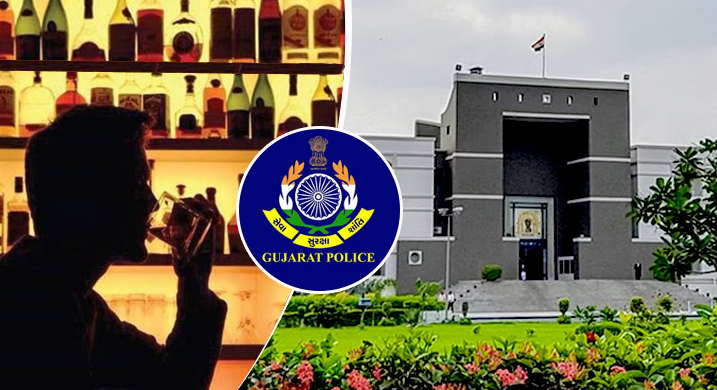An association of Maharashtra liquor shop owners has moved Gujarat High Court against actions taken against them by the Gujarat Police.
The PIL, that seeks safeguarding them from such actions, stems from incidents where the Gujarat Police have reportedly targeted wine shop owners based on allegations by individuals caught violating the Gujarat Prohibition Act, specifically those involved in the illicit transportation of alcohol into Gujarat, a dry state.
The Association of Progressive Retail Liquor Vendors from Maharashtra, alongside a similar association from the Union Territory of Daman, has voiced concerns over the current practice where statements from apprehended bootleggers pointing to wine shops in Maharashtra or Daman as the source of contraband lead to criminal proceedings against these shop owners in Gujarat. This issue prompted the association to initially file a petition last year, which was later withdrawn with the option to refile, leading to the current PIL.
Dhruvin Mehta, advocate for the association, highlighted the legal predicament faced by liquor vendors in Maharashtra and Daman. According to him, the legal framework in Maharashtra allows for the sale of liquor, with a defined protocol for addressing any breaches of prohibition laws. This protocol mandates that any infringement should prompt action from the excise department rather than result in immediate criminal charges against the shop owners. However, when individuals are caught in Gujarat with illicit liquor and they are traced back to shops in Maharashtra or Daman, Gujarat Police book and, in some instances, arrest the shop owners based on these allegations.
The PIL calls for the HC to issue directives to Gujarat Police, restraining them from initiating criminal actions against wine shop owners and license holders in Maharashtra based on the testimonies of individuals apprehended in Gujarat. This aims to protect the rights and livelihoods of liquor vendors operating legally within their respective states, who find themselves entangled in cross-state legal issues due to the prohibition laws of Gujarat.
The hearing for this PIL is scheduled for February 15, as the petitioner’s advocate was not available for the initial hearing. This case underscores the complex interplay between state-specific laws in India, especially concerning the sale and transportation of alcohol, and highlights the challenges faced by businesses operating legally within their jurisdiction but facing legal hurdles due to actions in neighbouring states.
Why Repo Rates Have Remained Unchanged In India. Click Here













